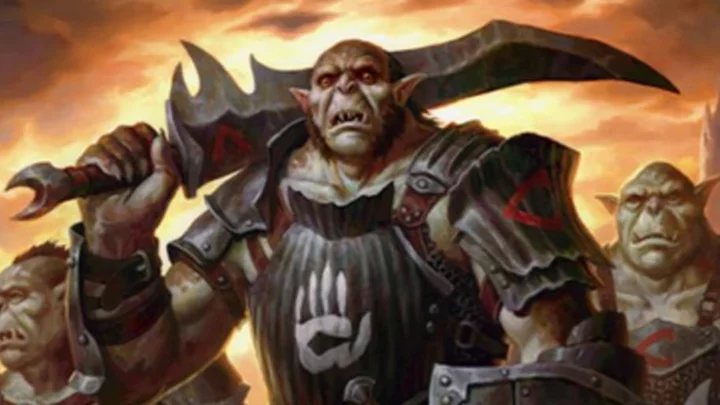The terrifying armies of Isengard and Minas Morgul are being unleashed in Magic: The Gathering. The deadly orc legions of Sauron from Lord of the Rings are represented in the new Lord of the Rings: Tales of Middle Earth set through a new mechanic. Here's how it works and how it changes an old mechanic's rules.
Lord of the Rings: Tales of Middle Earth is the latest set that's a part of MTG's new Universes Beyond initiative, taking existing properties like Warhammer and Transformers and merging them with Magic gameplay. Tales of Middle Earth puts a new spin on classic characters like Frodo, Bilbo and Gandalf and introduces new flavorful mechanics related to The One Ring, for example.
MTG Lord of the Rings: Tales of Middle Earth Amass Orcs Mechanic Explained
Some cards in the new Tales of Middle Earth set instruct players to Amass Orcs X, with X being a number. This may seem familiar to players of Magic: The Gathering who were around for 2019's set War of the Spark, which introduced Amass, according to the MTG Wiki.
The mechanic is fairly straightforward: If a player does not control an Army when they Amass, they create one as a 0/0 token creature, then put X +1/+1 counters on it, with X being the Amass value of the ability. If they already had an Army, they instead put that many +1/+1 counters on their Army, growing it.
The new implementation adds creature types to Armies: Previously all Armies were Zombie Armies, referring to the Lazotep legions of MTG villain Nicol Bolas. Now, if a player were to play a new card that says Amass Orcs 5 then play an old one that said Amass 1, they would have a 6/6 Zombie Orc Army: A frightening force on the battlefield. It is likely that old Amass cards will be errata'd to say "Amass Zombies X," though this is not yet confirmed.
How many creature types can be added to Armies? I can't wait until I can attack opponents with Zombie Orc Demon Beast Dragon Brushwagg Armies.
This article was originally published on dbltap as MTG Lord of the Rings: Tales of Middle Earth Amass Orcs Mechanic Explained.









